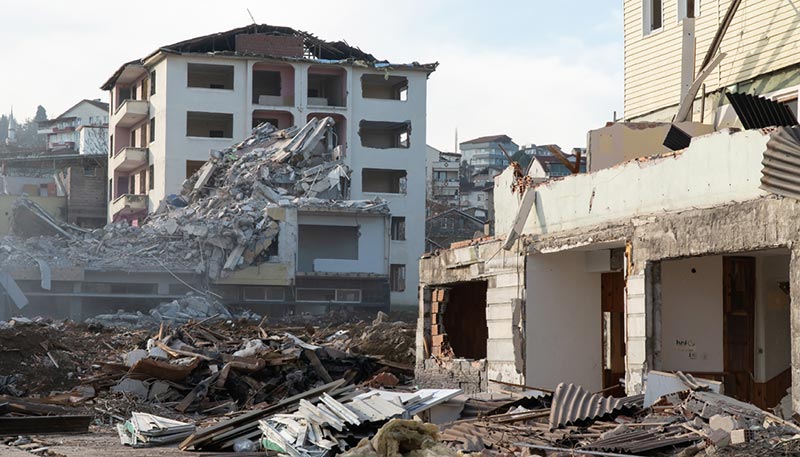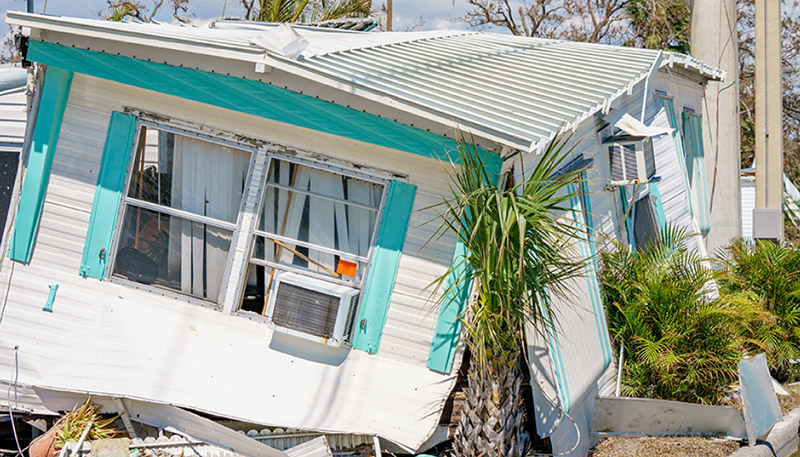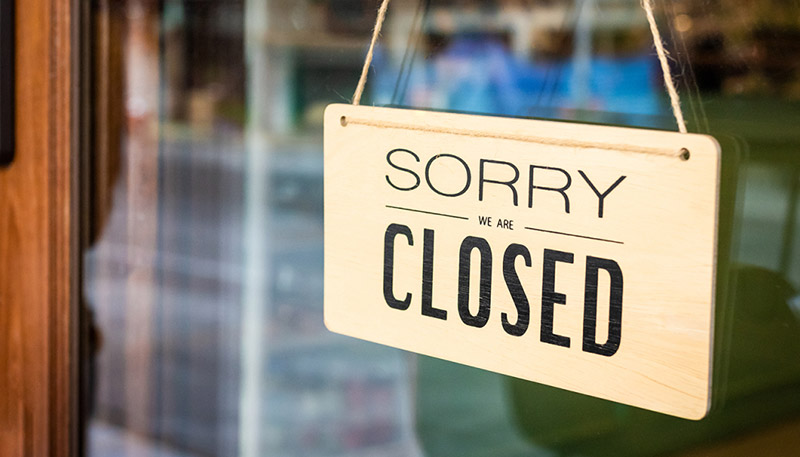Hurricanes are a common natural disaster in many coastal regions and can leave behind a trail of destruction in their wake. In 2021 alone, the National Hurricane Center recorded more than 20 tropical depressions in the Atlantic region, with seven becoming hurricanes. Hurricanes are defined as tropical storms in which winds reach a constant speed of more than 74 miles per hour.
With each hurricane season bringing potentially destructive winds, flooding, and property damage to coastal areas, particularly in the Atlantic Ocean, hurricane insurance is critical for residents of these areas. Knowing how to deal with hurricane damage claims is a useful skill that everyone hopes they will never need.

Understanding Hurricane Damage
Hurricanes are incredibly powerful storms that can cause a wide range of devastating damage. Some of the significant impacts include:
- Wind Damage: High-speed winds can cause destruction to buildings, homes, infrastructure, and vegetation, tearing off roofs, uprooting trees, and demolishing structures.
- Storm Surges: Hurricanes bring intense oceanic storm surges, pushing seawater far inland. These surges can flood coastal areas, causing damage to properties, roads, and utilities.
- Heavy Rainfall and Flooding: Hurricanes often bring heavy rainfall, leading to widespread flooding. This can overwhelm drainage systems, inundate homes, and cause landslides in hilly areas.
- Power Outages: Strong winds and falling trees or debris often result in power outages and can disrupt daily life for extended periods.
- Infrastructure Destruction: Hurricanes can damage critical infrastructure, such as bridges, roads, and utilities, hampering rescue efforts and hindering recovery.
- Environmental Impact: Hurricanes can have severe consequences on the environment, including erosion of coastlines, destruction of habitats, and contamination due to flooding.
Recovery from hurricanes often takes a long time and requires significant resources and support from various agencies and communities.
The Insurance Claim Process
The hurricane insurance claim process can vary based on the insurance policy, the extent of the damage, and the insurance company’s specific procedures. The following is a general outline of the steps that are involved:
- Safety and Documentation: Policyholders should first ensure the safety of themselves and their families and properties and then take immediate steps to prevent further damage if it is safe to do so. Property owners should record photos and video to include with hurricane damage documentation that is submitted when making any insurance claim.
- Contact Insurance Company: Notify the insurance company as soon as possible. Most policies require prompt reporting of damage. Provide them with details about the damage and verify what steps you need to take next.
- Claim Filing: Insurance companies will guide policyholders on how to file a claim. This often involves filling out claim forms and providing documentation of the damage, including photos, receipts, and any other relevant information.
- Assessment: An insurance adjuster who is employed by the insurance company will likely visit the property to assess the damage. The adjuster will examine the documentation provided and ask additional questions about the damage, if necessary.
- Estimation and Settlement: Once the assessment is complete, the insurance company will determine the covered losses and provide an estimate for the cost of repairs or replacement. The insurance company will offer a settlement based on the terms of the policy.
- Review the Settlement Offer: Policyholders should review the settlement offer carefully. If a policyholder believes the offered amount is insufficient or if there are disagreements, they can negotiate with the insurance company. In some cases, independent public adjusters can assist policyholders with these negotiations.
- Claim Resolution: Upon agreement, the insurance company will issue payment for the covered damages, often in multiple installments, depending on the extent of the repairs.
It is essential to keep records of all communication with the insurance company, including the dates, names of representatives you talked to, and a summary of the conversation. If a policyholder encounters difficulties or has concerns about the process, they can seek advice from a public insurance adjuster or legal counsel specializing in insurance claims.

Challenges in Hurricane Damage Claims
Any major insurance claim can be challenging, especially for a policyholder who has never filed an insurance claim before. Hurricane insurance claims can be difficult to navigate because hurricanes may involve both wind and water damage, and policies often cover these issues in different ways. For instance, most people in hurricane-prone areas will have both a standard homeowners insurance policy in addition to a flood insurance policy.
If a property is damaged during a hurricane, insurance companies for the two different policies may argue that damage should be covered under the other policy. For instance, many insurance policies have “wind-driven rain” policies that mean water damage caused by rain is only covered if the wind caused damage to the property that allowed water to enter.
The Role of Independent Public Adjusters
Public insurance adjusters work independently to advocate for insurance policyholders when they need to make claims. Public adjusters work for businesses, individuals, and organizations that have suffered damages or losses, helping them to get the best possible outcomes by assessing the damage and helping them understand their insurance policies. Public adjusters can handle virtually everything on behalf of the policyholder, from filing the claim to finalizing the settlement.
Public adjusters work on a fee basis, often taking a percentage of the final settlement amount as their fee. However, their expertise and ability to potentially increase the insurance payout can be valuable, especially when filing complex or high-value claims where maximizing the settlement is crucial.

Benefits of Hiring an Independent Public Adjuster
Independent public adjusters can offer hurricane damage assistance when policyholders are navigating hurricane damage claims. Not only are public adjusters familiar with the language of insurance policies, but they can also act as an expert who is working directly for the policyholder, rather than the insurance company. Public adjusters can interface with the insurance company and make sure that the policyholder gets the payout they are entitled to receive after a destructive hurricane hits their home.
There are many reasons that a policyholder might decide to work with a public adjuster in the event of hurricane damage, but these professionals can be an especially valuable asset for large or complex claims. Public adjuster expertise may also be the answer when the insurance company’s adjuster comes back with a surprisingly low estimate for a claim.
Important Deadlines and Timelines
When making a hurricane damage claim, time is of the essence. Many insurance policies have deadlines that indicate how soon after damage occurs that a claim must be filed. Homeowners should contact their insurance companies as soon as it’s practical after hurricane damage to start moving the process forward.
At the same time, hurricanes can cause significant delays at insurance companies, particularly if there is widespread damage. Some states, like Florida and Louisiana, have their own laws governing how soon an insurance company must reply to a claim and ultimately pay or settle the claim after it is filed.
Preparing for Future Hurricanes
Some communities, particularly along the Atlantic coast, are particularly vulnerable to hurricane damage. Homeowners that live in a hurricane-prone area should not only verify that they are properly insured but should also make sure their property is prepared for every hurricane season. Indeed, insurance companies can and will deny hurricane damage claims if there is reason to believe a property was not maintained and suffered excess damage because of homeowner neglect. Hurricane preparation means trimming trees regularly, protecting flood-prone property with sandbags when a storm is approaching, boarding up windows, and taking other recommended precautions.
If you suffered Hurricane Ida damage and still need to make a claim, consider reaching out to WorldClaim and working with a public adjuster to get the payout you deserve.



